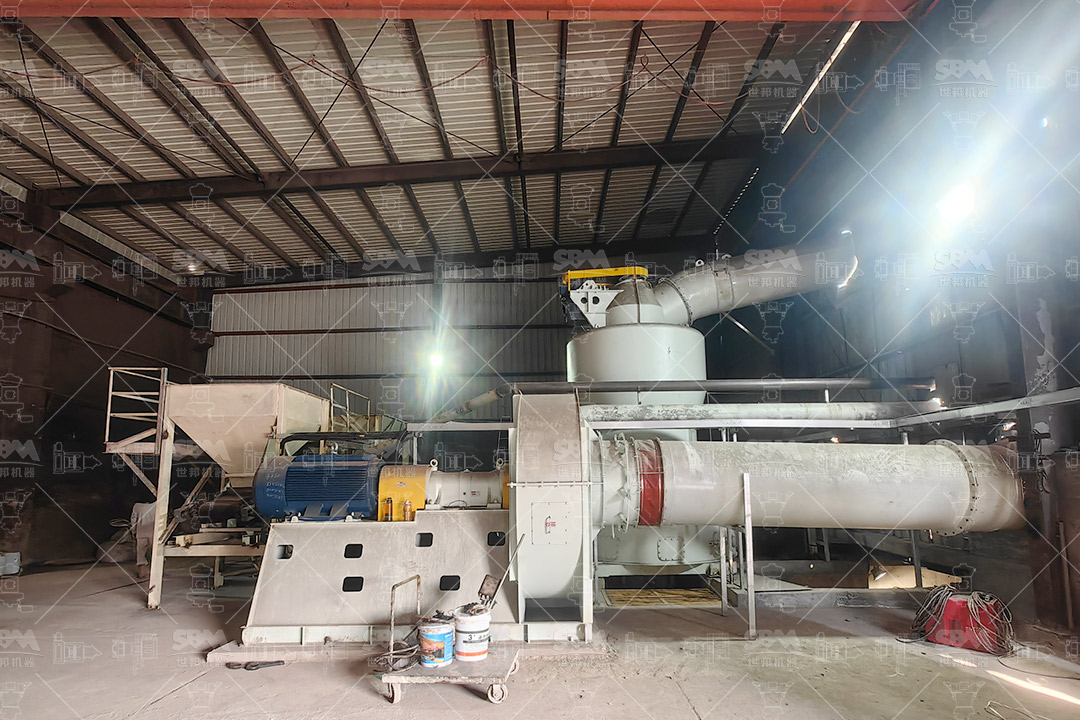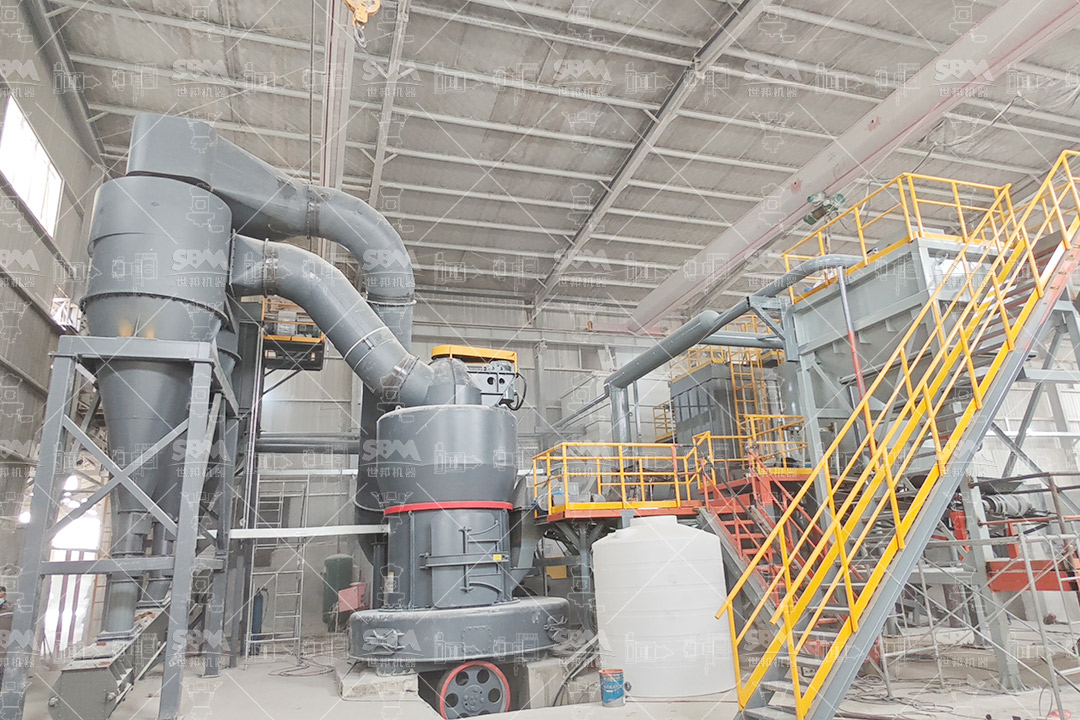Gypsum, a soft sulfate mineral composed of calcium sulfate dihydrate (CaSO₄·2H₂O), is a crucial raw material for plaster production. The quality of plaster is directly influenced by the fineness and uniformity of the gypsum powder. Therefore, the milling process is a critical step in transforming raw gypsum rock into a high-quality, consistent powder suitable for various plaster applications. This article provides a comprehensive overview of the gypsum milling process, from raw material preparation to the final product collection, and highlights advanced milling solutions that enhance efficiency and product quality.

Before milling, raw gypsum ore must be prepared. This typically involves primary crushing using jaw crushers or impact crushers to reduce large rocks to a manageable size, usually below 50mm. For some finer grinding systems, a secondary crushing stage might be necessary to achieve a smaller feed size. The moisture content of the gypsum is also a critical factor; excessive moisture can lead to clogging and reduced mill efficiency. Drying might be integrated before or during the milling process depending on the initial moisture content and the technology used.
Pre-crushed gypsum is consistently fed into the mill. This is often achieved using vibrating feeders or screw conveyors, which ensure a steady and controllable feed rate. A consistent feed is vital for maintaining stable operation within the mill and achieving a uniform product.
This is the core of the process where size reduction occurs. The choice of grinding equipment depends on the desired final fineness, required capacity, and energy consumption goals. The ground material is a mixture of fine powder and coarser particles.
Following grinding, the material enters a classification stage. An internal or external classifier (e.g., a dynamic or cyclone classifier) separates the fine particles that meet the target specification from the coarse ones. The coarse particles are recirculated back to the grinding chamber for further size reduction, ensuring maximum efficiency and preventing over-grinding of finished product.
The fine gypsum powder that passes the classifier is transported by air to a collection system. This typically consists of a cyclone collector that separates the bulk of the powder from the air stream, followed by a highly efficient pulse baghouse dust collector or an electrostatic precipitator to capture the finest particles, ensuring high product yield and minimal environmental dust emission.

The collected gypsum powder is then conveyed to storage silos. From there, it can be automatically packed into bags or loaded in bulk for shipment to plaster production facilities.
The selection of an appropriate mill is paramount for profitable plaster production. Key factors to consider include:
For producers aiming for the highest quality plaster with superior fineness and consistency, the SCM Series Ultrafine Mill is an exceptional choice. This mill is engineered to produce fine and ultra-fine gypsum powder ranging from 325 to 2500 mesh (45-5μm), making it ideal for high-value plaster applications where smoothness and reactivity are critical.
The SCM Mill’s technological advantages directly address the challenges of gypsum milling:
| Model | Handling Capacity (ton/h) | Main Motor Power (kW) | Feed Size (mm) | Final Fineness (mesh) |
|---|---|---|---|---|
| SCM800 | 0.5-4.5 | 75 | ≤20 | 325-2500 |
| SCM900 | 0.8-6.5 | 90 | ≤20 | 325-2500 |
| SCM1000 | 1.0-8.5 | 132 | ≤20 | 325-2500 |
| SCM1250 | 2.5-14 | 185 | ≤20 | 325-2500 |
| SCM1680 | 5.0-25 | 315 | ≤20 | 325-2500 |
For large-scale production of plaster-grade gypsum where ultra-fine fineness is not the primary goal, the MTW Series Trapezium Mill offers a robust and cost-effective solution. It is perfectly suited for producing powder in the range of 30-325 mesh (0.6-0.045mm) with high capacity, making it a workhorse for standard plaster manufacturing plants.
Its key features include:
The milling process is the heart of transforming raw gypsum into a functional plaster product. Understanding the stages involved—from feeding and grinding to classification and collection—is essential for optimizing production. Investing in modern, efficient milling technology is not just about achieving the right fineness; it’s about maximizing yield, minimizing energy costs, reducing maintenance downtime, and ensuring environmental compliance. For producers seeking top-tier quality in ultra-fine plasters, the SCM Ultrafine Mill provides unparalleled performance. For high-volume production of standard plaster grades, the MTW Series Trapezium Mill stands as a reliable and efficient solution. Selecting the right equipment tailored to specific product goals is the definitive step towards success in the competitive plaster market.
